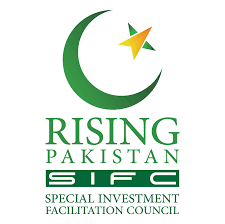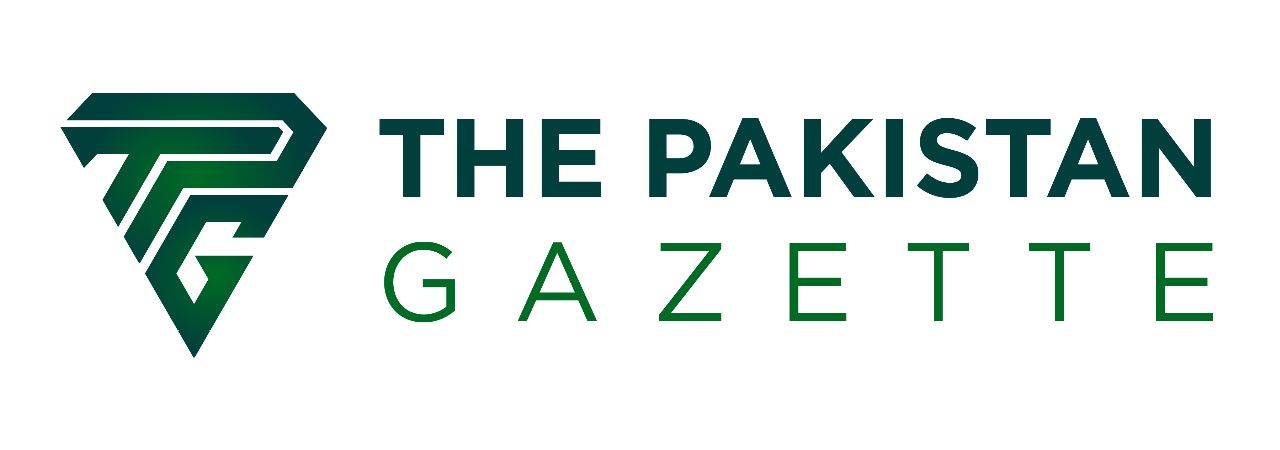
What is SIFC
SIFC stands for the Special Investment Facilitation Council. It is a platform established by the Government of Pakistan to encourage and facilitate both foreign and domestic investment in various sectors of the country’s economy. The council aims to streamline the investment process, remove bureaucratic obstacles, and create a conducive environment for investment by coordinating efforts among different government departments and stakeholders.
Structure of SIFC
- Apex Committee – SIFC:
- Includes the Prime Minister, Federal Ministers from key ministries, Chief of the Army Staff, Provincial Chief Ministers (by special invitation), and other government officials.
- Chaired by the Prime Minister.
- Responsible for overseeing the overall direction and strategy of the SIFC.
- Executive Committee – SIFC:
- Comprises the Minister for Planning Development and Special Initiatives, National Coordinator from the Pakistan Army, Federal Ministers, Provincial Ministers, Special Assistant to the Prime Minister (SIFC Secretariat), Provincial Chief Secretaries, and other officials.
- Tasked with implementing policies and initiatives outlined by the Apex Committee.
- Implementation Committee – SIFC Secretariat:
- Coordinated by the SIFC Secretariat.
- Includes the Special Assistant to the Prime Minister, Secretary from the Ministry of Foreign Affairs, Director General from the Pakistan Army, and other relevant members.
- Responsible for executing specific projects and initiatives identified by the Executive Committee.
Objectives of SIFC
- Acting as a Single Window:
- SIFC aims to serve as a single-window platform for multi-domain cooperation in critical sectors like Defence, Agriculture, Minerals, Information Technology, and Energy. Its focus is on facilitating investment and creating an enabling policy environment.
- Developing a Long-Term Roadmap:
- SIFC is tasked with developing a long-term roadmap for growth, development, and investment in the relevant sectors while seizing immediate opportunities for economic advancement.
- Raising Awareness:
- The council endeavors to raise awareness of Pakistan’s untapped potential in key sectors, both domestically and internationally, to attract investment interest.
- Improving Ease of Doing Business:
- SIFC aims to improve the ease of doing business in Pakistan by eliminating systemic and bureaucratic obstacles, optimizing coordination between federal and provincial levels, and expediting decision-making and project implementation.
Projects of SIFC
The 28 projects identified under SIFC, particularly those related to mining, energy, and privatization, require careful review and structuring. Creating a win-win situation for both the State and investors is a challenging task, and only experts can balance these competing interests.
- Agriculture Sector Projects:
- Cultivation in Cholistan: Approximately 50,000 acres of land in Cholistan will be cultivated with crops like wheat, canola, millet, and cotton. An estimated investment of Rs205 billion is needed to achieve food security goals, reduce the import bill, and create jobs.
- Livestock Subsector: Plans include establishing a corporate dairy farm with a capacity of 20,000 animals, producing 900,000 liters of milk daily, and a corporate feedlot farm with a capacity of 30,000 animals, providing 15,000 tons of meat annually. Additionally, a corporate camel farm with a capacity of 10,000 animals is planned to supply 450 tons of meat and 2 million liters of milk annually.
- Mining Sector Projects:
- Thar Coalfield: Designated as a Special Economic Zone, the Thar Coalfield will benefit from zero customs duties on machinery imports, withholding tax exemptions on dividends for the initial 30 years, and exemptions on other levies including special excise duty, federal excise duty, WPPF, and WWF for 30 years.
- Privatization Initiatives:
- Privatization of State Assets: SIFC is involved in the privatization of certain state-owned assets, including Pakistan International Airlines (PIA), distribution companies, and Pakistan Steel Mills. The objective is to fetch dollars needed to increase forex reserves. However, there is emphasis on transparent terms of sale to prevent exploitation by investors.
- Energy Sector Projects:
- Export Processing Zones: SIFC is promoting export processing zones, offering exemptions from all customs duties and taxes on machinery, equipment, and materials. These zones are free from national import regulations and exchange control regulations of Pakistan, promoting production for export purposes.

Hurdles in SIFC
- Lack of Focus on Structural Issues:
- One of the key criticisms leveled against SIFC is its exclusive focus on attracting foreign investment without adequately addressing critical structural issues within the economy. While attracting foreign investment is important, neglecting institutional reforms and regulatory challenges may hinder long-term economic growth and stability.
- Involvement of the Military in Economic Matters:
- The involvement of the military in economic decision-making within SIFC raises concerns about expertise and potential destabilization. Economic matters often require specialized knowledge and experience, which the military may not possess to the same extent as civilian experts. Moreover, excessive military involvement could lead to political and economic instability.
- Neglect of Institutional Reforms and Regulatory Issues:
- SIFC’s primary focus on attracting foreign investment may overshadow the need for vital institutional reforms and regulatory changes. Without addressing issues such as corruption, bureaucratic inefficiencies, and legal hurdles, the investment environment may remain challenging for both foreign and local investors.
- Reliance Solely on Foreign Investment:
- Relying solely on foreign investment to address Pakistan’s economic challenges may not be sustainable in the long run. While foreign investment is valuable, it should be complemented by efforts to mobilize domestic resources and promote local entrepreneurship. Overemphasis on foreign investment may overlook the potential of domestic investment and innovation.
- Uncertain Policy Environment:
- The frequent changes in economic policies, exchange rate fluctuations, and regulatory uncertainties create an unstable investment environment. Investors may hesitate to commit capital to long-term projects if they perceive significant policy risks or lack clarity on government regulations.
- Lack of Expertise and Experience:
- Pakistan may lack professionals with the necessary expertise and experience to effectively manage and implement SIFC’s initiatives. Without skilled personnel to navigate complex investment projects and policy frameworks, SIFC’s effectiveness may be compromised.
- Lack of Consensus and Transparency:
- There may be a lack of consensus and transparency in formulating policies and concession frameworks for attracting investment. Without broad-based consultation and transparent decision-making processes, there is a risk of alienating key stakeholders and undermining public trust in SIFC’s initiatives.
Admin at The Pakistan Gazette

